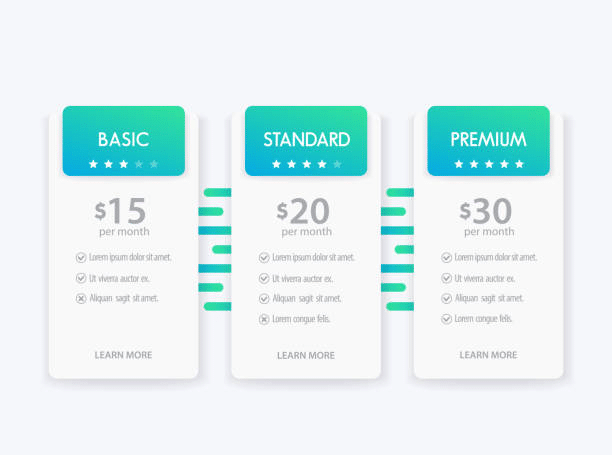Website hosting services play a crucial role in the success of any online venture. Choosing the right provider is essential to ensure visitors’ smooth and stable experience. With numerous options available in the market, making a well-informed decision can be challenging. To simplify the process, we’ve compiled a list of 12 criteria you should consider when evaluating website hosting services.
Assessing Reliability And Uptime

Your website’s uptime is critical in determining its accessibility to users. Uptime refers to the percentage of time your website is available and functioning correctly, ensuring a seamless experience for visitors. A reliable hosting provider should strive to offer at least 99.9% uptime. It means that your website will be accessible and operational 99.9% of the time, minimizing downtime and maintaining a positive user experience.
User Experience
A website with high uptime provides visitors with a smooth and consistent experience, increasing user satisfaction and the likelihood of return visits.
Search Engine Rankings
Uptime can also affect your website’s rankings. Search engines, such as Google, prioritize websites that offer users a reliable and stable experience. Frequent downtime can negatively impact your website’s ranking, making it harder for potential visitors to find your site.
Brand Reputation
Your website’s uptime reflects your brand’s reliability and professionalism. Consistent uptime helps maintain a positive brand reputation, while frequent downtime can give users the impression that your brand is untrustworthy or poorly managed.
Evaluating Server Speed

A fast-loading website is essential for providing an optimal user experience and can contribute to improved search engine rankings. To assess a hosting provider’s server speed, it’s necessary to conduct speed tests and evaluate their performance during peak traffic hours. It will help ensure that your website can handle the increased load and maintain a consistent user experience, even during times of high demand.
Here are a few steps to evaluate a hosting provider’s server speed:
Conduct Speed Tests
Use online tools like Pingdom, GTmetrix, or Google PageSpeed Insights to test the server speed of hosting providers. These tools provide insights into the website’s loading time, performance scores, and suggestions for improvement. You can use this information to compare different hosting providers and choose the best performance.
Test During Peak Traffic Hours
The server speed during peak traffic hours is a crucial factor in assessing a hosting provider’s performance. Test the server speed at various times throughout the day, emphasizing peak hours, to apprehend how well the provider’s infrastructure can handle increased traffic.
Review Server Specifications
The hosting provider’s specifications, such as RAM, CPU, and storage type, can impact server speed. Look for providers that use solid-state drives (SSDs) and offer sufficient resources to ensure optimal performance.
Data Center Locations
The proximity of the hosting provider’s data center to your target audience can also affect server speed. Choose a provider with data centers near your primary audience to reduce latency and improve load times.
Content Delivery Network (CDN) Support
A CDN can significantly improve server speed by distributing your website’s content across multiple servers worldwide. It ensures that users can access your website quickly, regardless of location. Check if the hosting provider offers CDN support or has partnerships with CDN providers to optimize server speed.
Understanding Scalability

Scalability is a crucial aspect to consider when choosing a website hosting provider. As your website grows in traffic, content, or complexity, you may need to upgrade your hosting plan to meet increased demands. Selecting a provider that offers easy scalability with multiple options ensures that your website can perform optimally as your requirements evolve.
Here are some factors to consider when evaluating a hosting provider’s scalability:
Range Of Hosting Plans
A provider with a wide range of hosting plans, such as shared hosting, virtual private server (VPS) hosting, and dedicated server hosting, can better accommodate your website’s growth. As your website’s needs change, you can easily upgrade or downgrade your hosting plan without switching providers.
Resource Allocation
Ensure the hosting provider offers flexible resource allocation, allowing you to increase or decrease resources such as RAM, CPU, and storage. It guarantees that your website has the necessary resources to handle increased traffic and content.
Seamless Migration
Look for a hosting provider that offers hassle-free site migration between hosting plans. It is essential when moving from a shared hosting plan to a VPS or dedicated server, as the process can be complex. A provider that offers migration assistance or automated migration tools can make the process smoother and less disruptive to your website’s operation.
Elasticity
Some hosting providers offer cloud-based hosting solutions with elastic scalability. Resources can be automatically adjusted based on your website’s real-time needs, ensuring optimal performance even during fluctuating demand.
Cost-effectiveness
As you scale your hosting plan, consider the costs associated with upgrading. Some providers may charge hefty fees for additional resources or plan changes. Opt for a hosting provider that offers transparent and cost-effective scalability options.
Ensuring Security

Security is a top priority when selecting a website hosting provider, as protecting your website and user data from potential threats is vital. Choosing a provider with robust security measures can help prevent unauthorized access, data breaches, and other cyberattacks.
Here are some key security features to look for when evaluating hosting providers:
SSL Certificates
Secure Sockets Layer (SSL) certificates encrypt data transferred between your website and its visitors, ensuring sensitive information such as login credentials and payment details remain secure. Most hosting providers offer free SSL certificates or easy integration with third-party SSL providers.
DDoS Protection
Distributed Denial of Service (DDoS) attacks can overwhelm your website’s server, causing downtime and disrupting user access. A hosting provider with DDoS protection can help mitigate such attacks by filtering malicious traffic and maintaining your website’s availability.
Regular Server Backups
Regular server backups are essential to protect your website’s data in case of hardware failure, hacking, or other data loss incidents. Look for hosting providers that offer automated daily or weekly backups and easy restoration options to minimize downtime and data loss.
Malware Scanning And Removal
Hosting providers that offer malware scanning and removal services can help identify and eliminate potential threats before they cause damage. This proactive approach to security can help protect your website from malware infections and other cyberattacks.
Firewall Protection
A web application firewall (WAF) monitors incoming traffic to your website and filters out malicious requests, helping to protect your site from common web-based attacks such as SQL injection and cross-site scripting (XSS). Opt for a hosting provider that includes WAF protection in their plans or supports easy integration with third-party firewall services.
Secure Server Infrastructure
Assess the hosting provider’s server infrastructure and security protocols. To minimize vulnerabilities, look for providers that use secure data centers with physical security measures, redundant power supplies, and up-to-date server software.
Two-factor Authentication (2FA)
2FA adds an extra layer of security to your hosting account by requiring a secondary authentication method, such as a code sent to your mobile device and your password. It can help prevent unauthorized access to your hosting account even if your password is compromised.
Technical Support

Technical support is crucial for maintaining a functional and accessible website. A good support team can resolve various issues, minimize downtime, and help during setup and migration processes. Thereby, it protects your brand’s reputation and prevents potential revenue loss.
A. Evaluating Support Channels
Live chat
Many hosting providers offer live chat support, which allows you to connect with a support representative in real time. This channel can be beneficial for quick issue resolution and general inquiries.
Email Or Ticketing System
Providers may also offer email or ticket-based support, where you can submit detailed information about your issue and receive a response within a specified time frame.
Phone support
Some hosting providers offer phone support, which can be helpful for urgent issues or when you prefer direct communication with a support representative.
Knowledge Base And Tutorials
A comprehensive knowledge base or tutorial library can help you troubleshoot common issues or learn how to use the hosting provider’s features and tools.
B. Assessing Response Time And Quality
Response Time
Evaluate the hosting provider’s average response time for each support channel. A provider with quick response times is more likely to address issues promptly, minimizing potential downtime.
Quality Of Support
Assess the quality of support provided by the hosting provider by reviewing customer reviews and testimonials. Look for providers with knowledgeable support staff who can provide accurate, helpful, and efficient solutions.
Support Availability
Consider the hosting provider’s support available, such as 24/7 support or support during business hours. Choose a provider whose support hours align with your needs and potential issue resolution times.
Comparing Pricing And Plans

When selecting a website hosting provider, balancing affordability and quality is essential. While cost is often a significant factor, choosing the cheapest option may result in poor performance or inadequate features.
A. Analyze The Available Plans
Types Of Hosting Plans
Hosting providers typically offer a variety of plans, such as shared hosting, virtual private server (VPS) hosting, dedicated server hosting, and cloud hosting. Consider your website’s current and future needs to select the most suitable plan type.
Resource Allocation
Examine the resources allocated in each plan, such as RAM, CPU, storage, and bandwidth. Ensure your chosen plan offers sufficient resources to support your website’s performance and anticipated growth.
Features
Review the features included in each plan, such as SSL certificates, email accounts, domain registration, and website builders. Ensure the plan you select offers the features your website requires.
B. Compare Pricing
Cost-effectiveness
Compare the pricing of various hosting plans across different providers. Look for plans that balance affordability and quality, providing the necessary features and resources at a reasonable price.
Payment Options
Consider the payment options offered by the hosting provider, such as monthly or annual billing. Some providers may offer discounts for longer billing cycles, which can reduce overall costs.
Hidden Charges
Be aware of any hidden fees or charges, such as setup fees, domain registration fees, or additional costs for specific features. Factor these costs into your overall assessment of the plan’s value.
C. Assess The Value Of Your Investment
Reputation and reliability
Research the hosting provider’s reputation and track record for reliability, performance, and customer support. A provider with a solid reputation may be worth the investment, even if their prices are slightly higher.
Scalability
Consider the hosting provider’s scalability options, as your website’s needs may change. A provider that offers easy and cost-effective scalability can save you from switching providers as your website grows.
Customer Support
Factor in the quality and availability of the hosting provider’s customer support when assessing value. Responsive and knowledgeable support can be invaluable in resolving issues and ensuring a smooth hosting experience.
Control Panel Interfaces

A user-friendly control panel is essential when selecting a website hosting provider. An intuitive control panel simplifies the management of your website, allowing you to perform tasks efficiently and with minimal technical expertise.
A. Popular Control Panel Options
cPanel
cPanel is a widely-used control panel known for its user-friendly interface and robust features. It offers easy access to website management tools like file managers, email account management, and database administration. cPanel also provides a marketplace for one-click installations of popular web applications like WordPress, Joomla, and Drupal.
Plesk
Plesk is another popular control panel option for managing websites on Windows and Linux servers. It offers a clean and intuitive interface, access to essential website management tools, such as domain and email account management, and one-click installations of web applications. Plesk also includes built-in security features and supports integration with various extensions to enhance functionality.
B. Evaluating Control Panel Interfaces:
Demo Or Trial
Many hosting providers offer demo versions or trials of their control panels. It allows you to test the interface and features before committing to a hosting plan.
Compatibility
Ensure the control panel is compatible with your website’s requirements, such as the server operating system or specific applications you plan to use.
Customization And Extensibility
Some control panels allow for customization or integration with additional tools and extensions. It can help you tailor the control panel to your needs and preferences.
Storage And Bandwidth Considerations

Storage space and bandwidth are crucial for a website’s performance and user experience. Storage capacity is essential for storing website files, databases, and emails, while bandwidth determines data transfer speed between your site and its visitors. Insufficient storage or limited bandwidth can negatively impact website performance, hindering content addition and visitor satisfaction.
Assess Your Website’s Requirements
Before selecting a hosting provider, estimate your website’s storage and bandwidth needs based on size, complexity, and expected traffic. It will help you choose a plan that meets your website’s requirements.
Compare Hosting Plans
Compare the storage and bandwidth offerings of various hosting providers and plans. Look for a provider that offers sufficient resources at a reasonable price without compromising quality and performance.
Consider Scalability
As your website grows, you may need to upgrade your hosting plan to accommodate increased storage and bandwidth needs. Opt for a provider that offers easy scalability with various plans and resources to support your website’s growth.
Review Usage Policies
Some hosting providers impose usage limits or additional fees for exceeding allocated resources. Familiarize yourself with the provider’s policies and fees to avoid unexpected costs or limitations.
Domain Management Features

Domain management is a crucial aspect of establishing and maintaining your online presence. Registering, transferring, and renewing domain names can be complicated, especially when done separately from hosting.
Domain Registration
Look for hosting providers that offer domain registration services alongside their hosting plans. It allows you to register a new domain or transfer an existing one quickly.
Domain Transfer
If you already have a domain, ensure the hosting provider supports domain transfers, allowing you to transfer your domain to their platform with minimal downtime or complications.
Domain Renewal
Consider the hosting provider’s policies and fees for renewal. Look for providers offering automatic renewal options and timely reminders before the renewal deadline.
Domain Privacy
Some hosting providers offer domain privacy services that protect your personal information from being publicly accessible in WHOIS searches.
Email Services And Professionalism

A website’s success relies heavily on choosing the right hosting provider. While most people focus on factors like server speed, uptime, and pricing, the importance of email services and professionalism should be considered.
Enhanced Credibility
Custom email addresses with your domain name lend credibility to your business and help establish trust with customers and partners. A professional email address is more likely to be taken seriously and can lead to better engagement.
Efficient Communication
Robust email services enable smooth communication between your business and customers, partners, or employees. Features like autoresponders, forwarders, and adequate storage contribute to efficient email management and organization.
Security And Privacy
A professional hosting provider prioritizes safety, ensuring your website and email data are protected from cyber threats. It includes spam and virus filters for your email service and measures like SSL certificates and regular backups for your website.
Customer Support
Professionalism in customer support ensures that any technical issues or queries are resolved promptly and efficiently, minimizing downtime and ensuring a smooth experience for your website visitors.
Service Level Agreements (SLAs)
Clear SLAs outline the hosting provider’s commitments to uptime, response times, and other essential service metrics. It helps set expectations and enables you to hold the provider accountable for their service quality.
Transparency And Communication
A professional hosting provider maintains open lines of communication and keeps you informed about maintenance, upgrades, or potential issues. This transparency enables you to plan and make necessary adjustments.
Reputation And Reliability
A hosting provider that demonstrates professionalism and offers reliable email services will positively impact your website’s reputation. A strong reputation can increase customer trust and better search engine rankings.
Customer Reviews And Testimonials

Customer reviews and testimonials are crucial in evaluating website hosting services as they provide unbiased, real-world insights into a provider’s performance, reliability, and customer experience. By considering this feedback, you can make an informed decision, ensuring that you choose a hosting provider that best suits your website’s needs and contributes to its success.
Unbiased Opinions
Customer reviews and testimonials provide an impartial perspective on a hosting provider’s services. They are based on real experiences, making them more reliable than promotional materials or advertisements from the company itself.
Identifying Strengths And Weaknesses
Reviews can reveal the strengths and weaknesses of a hosting provider. By analyzing positive and negative feedback, you can better understand which aspects of their services excel and which areas may require improvement.
Assessing Customer Support
Reviews often discuss customer support experiences, allowing you to gauge the provider’s responsiveness, professionalism, and helpfulness. This information is essential in ensuring that you choose a hosting provider that can effectively address any issues or concerns that may arise.
Comparing Providers
Customer reviews enable you to compare hosting providers to other web hosts based on real-world experiences. By assessing multiple studies across various providers, you can decide which is best suited for your needs.
Understanding User Satisfaction
Testimonials can help you gauge the overall satisfaction of customers using a hosting provider’s services. High satisfaction levels often indicate a trustworthy and reliable provider.
Verifying Service Claims
Web hosting providers make several claims about their services, such as uptime, speed, and security. Customer reviews and testimonials can help confirm whether these claims hold in real-world scenarios, ensuring you select a provider that delivers on their promises.
Building Trust
Positive reviews and testimonials can instill trust in a web host provider, while negative ones may raise concerns. By considering both, you can make a well-informed decision and choose a provider more likely to meet your expectations.
Ecosystem And Integrations

When choosing a website hosting service, evaluating the hosting provider’s ecosystem and integrations with popular web applications is necessary. An extensive ecosystem with solid partnerships and seamless integrations can enhance your website building and management experience significantly.
Compatibility
A hosting provider with strong partnerships and integrations ensures compatibility with popular web applications and platforms, such as WordPress, Drupal, Joomla, or eCommerce platforms like WooCommerce, Shopify, and Magento. This compatibility helps avoid potential issues that may arise due to software incompatibilities.
Ease Of Installation
Hosting providers with robust integrations often offer one-click installation or easy-to-use tools for popular applications. It simplifies the installation process and saves time, allowing you to focus on other aspects of building and managing your website.
Streamlined Management
A well-integrated hosting provider allows you to manage your website and its associated applications from a single control panel. It centralizes your website management tasks, making it more efficient and user-friendly.
Better Performance
Web hosting providers with strong partnerships optimize their servers for specific applications, ensuring better performance and stability for your website. It can result in faster loading times and improved user experience.
Access To Plugins And Extensions
Integrations with popular platforms give you access to different plugins and extensions, enabling you to customize your website’s functionality and appearance to meet your needs.
Scalability
A hosting provider with a robust ecosystem can accommodate your website’s growth by offering seamless integration with additional services, such as CDN, caching, or load balancing solutions, as your traffic and resource requirements increase.
Support
Hosting providers with well-established integrations often have specialized support teams for specific platforms and applications. This ensures that you receive knowledgeable and efficient assistance should any issues arise with your chosen application or platform.
FAQs

What is the difference between managed WordPress hosting and dedicated hosting?
Managed WordPress hosting is a specialized hosting service tailored for WordPress websites. The hosting provider handles WordPress updates, security, and performance optimizations, freeing you from technical tasks and allowing you to focus on your content.
On the other hand, dedicated hosting provides you with a dedicated server for your website, offering more control, resources, and customization options. This type of hosting is ideal for larger websites or businesses with specific requirements and higher resource demands.
How do plugins and extensions improve my website?
Plugins and extensions allow you to add functionality and customization options to your website, enhancing its appearance and user experience. By choosing a hosting provider with integrations for popular platforms, you gain access to a wide array of plugins and extensions tailored to your specific needs.
What are the benefits of choosing a hosting provider with a strong ecosystem?
A hosting provider with a strong ecosystem can accommodate your website’s growth, offering seamless integration with additional services such as CDN, caching, or load-balancing solutions. This ensures that your website can handle increased traffic and resource requirements without compromising performance.
How does website compatibility impact my choice of a hosting provider?
Website compatibility ensures that your chosen hosting provider supports the web applications and platforms you plan to use. It helps avoid potential issues arising from software incompatibilities and ensures a smooth website building and management experience.
Best Website Hosting Services: Our Top Picks
|
Primary Rating:
3.5
|
Primary Rating:
3.5
|
Primary Rating:
3.5
|
Final Thoughts

Selecting the best web hosting service is critical for the success of your website. With a wide range of options available, including managed WordPress hosting, dedicated hosting, and specialized services for WordPress websites, it can be challenging to choose the right provider. By considering the following 12 criteria, you can make an informed decision and select the best web hosting services for your needs.
By carefully evaluating these factors, you can find the best web hosting service that aligns with your website’s requirements, ensuring a smooth and successful online presence. Remember that the right hosting provider can significantly impact your website’s performance, user experience, and overall success.
Now that you have read and learned about the 12 essential criteria for evaluating website hosting services, we encourage you to visit our website for more information and guidance. We offer in-depth comparisons, expert recommendations, and valuable resources to help you make the best decision for your online presence.









